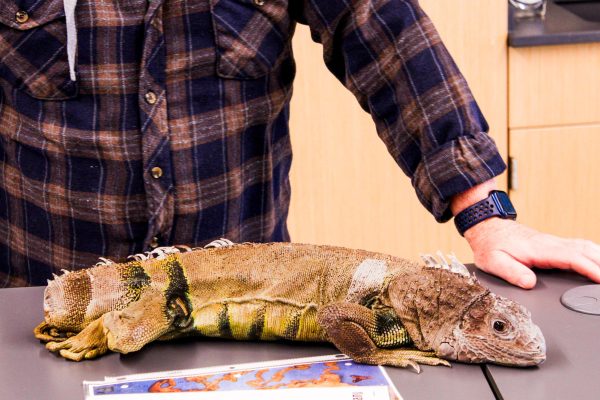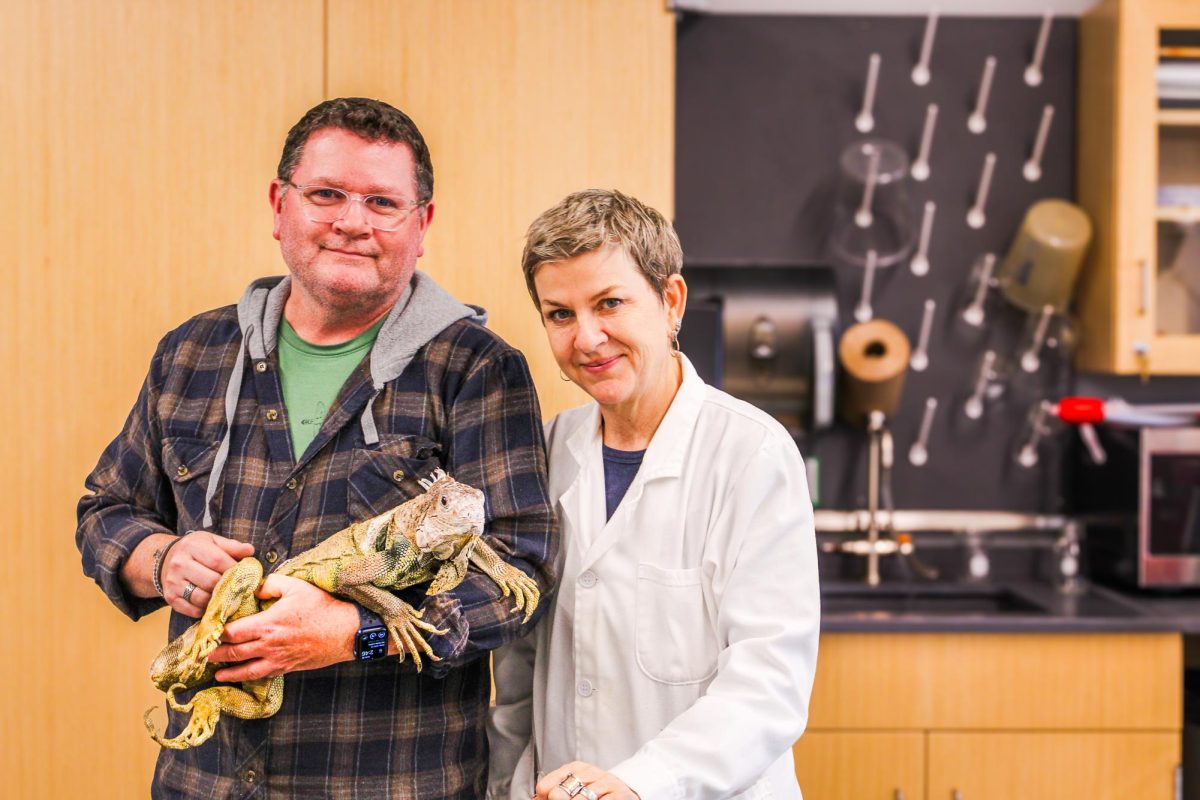They say a dog is a man’s best friend, but what about a lizard?
Bubba, the 28-year-old iguana, has been general biology laboratory coordinator John Drummond’s companion for the past 17 years.
“She is an incredibly tame, gentle lizard – especially for an iguana,” Drummond said.
Bubba was adopted into Drummond’s family in 2006 and first began visiting his introductory biology lab as part of the reptile and amphibian unit. Since then, Drummond estimates she has reached at least 1,250 students.
“She became a regular part of the curriculum,” Drummond said. “She helped people overcome their fear of reptiles or fear of lizards.”
Drummond decided to permanently relocate Bubba to Rockwell Integrated Science Center in order to optimize her living conditions. There, she is taken care of by a handful of student animal caretakers and Pippa Moody, Lafayette’s organismal support specialist.
For the past six years, Moody has gotten to know Bubba quite well. From daily excursions and walks to feedings four times a week, they are two peas in a pod.
“She’s just a lovely lizard,” Moody said. “She’s just so sweet.”
However, if there was one personality trait Drummond and Moody know about Bubba, it’s that she loves basking in the sun.
“She loves sunshine,” Drummond said. “You can take her out onto the Quad on a sunny day and she [will] draw attention and people come over.”
According to Moody, Bubba will flip onto her back to soak in all the rays. It is moments like these that show Bubba’s peaceful disposition. While most lizards have aggressive tendencies, Bubba is a refreshing exception.
“She likes being cuddled,” Moody said. “She really does.”
Bubba has lived many lives throughout her nearly three decades. She had her reproductive organs removed before joining Drummond’s family, an operation that faded her bright green complexion and had a long recovery period.
At 19 she broke her tail and the bone became infected, leading to an amputation. Though most lizard’s tails have the ability to grow back, the nature of Bubba’s surgery did not allow for regrowth. However, as Bubba does, she bounced back.
“She doesn’t seem to care or know that her tail is gone,” Drummond said.

Despite the amputation, Bubba lives a plentiful life full of attention, organic fruits and veggies, figs and fresh flowers.
Bubba has left quite a mark on many students. As a teaching assistant for Drummond’s introductory biology lab, Evan Inqui Gooberman ‘13 formed a bond with Bubba that he will never forget.
“Sometimes when I was having a bad day or feeling down about a test that I likely just bombed, I would go visit Bubba,” Inqui Gooberman wrote in an email. “Seeing that smile, especially if I pet her head or sprayed her with a little water would give me joy.”
Bubba is something of an old lady now, having lived 13 years longer than the average iguana. While her movement has slowed down and her eyesight is fading, Bubba remains a fan favorite.
“Nobody’s quite as popular as Bubba,” Drummond said.





















































































































